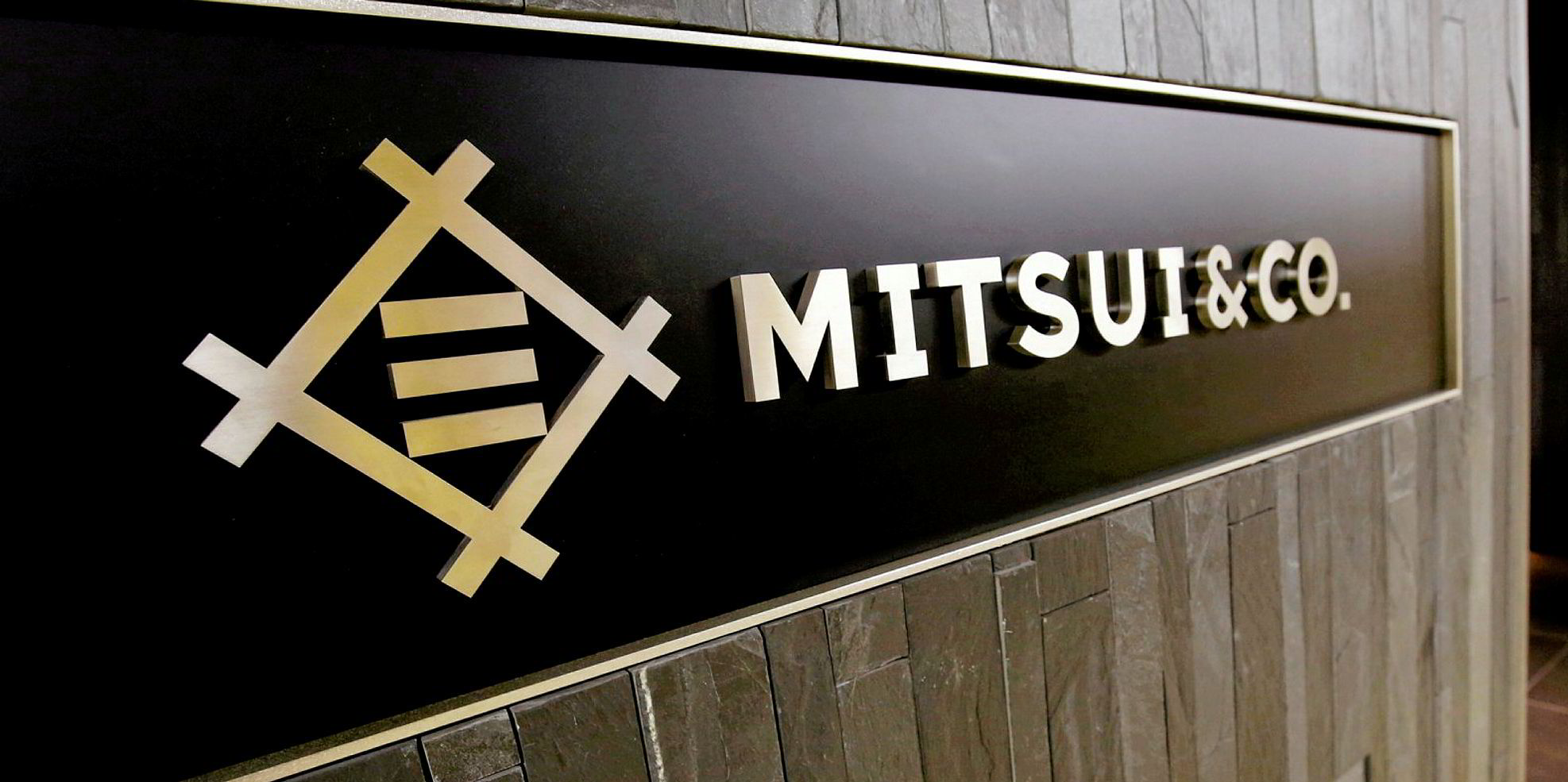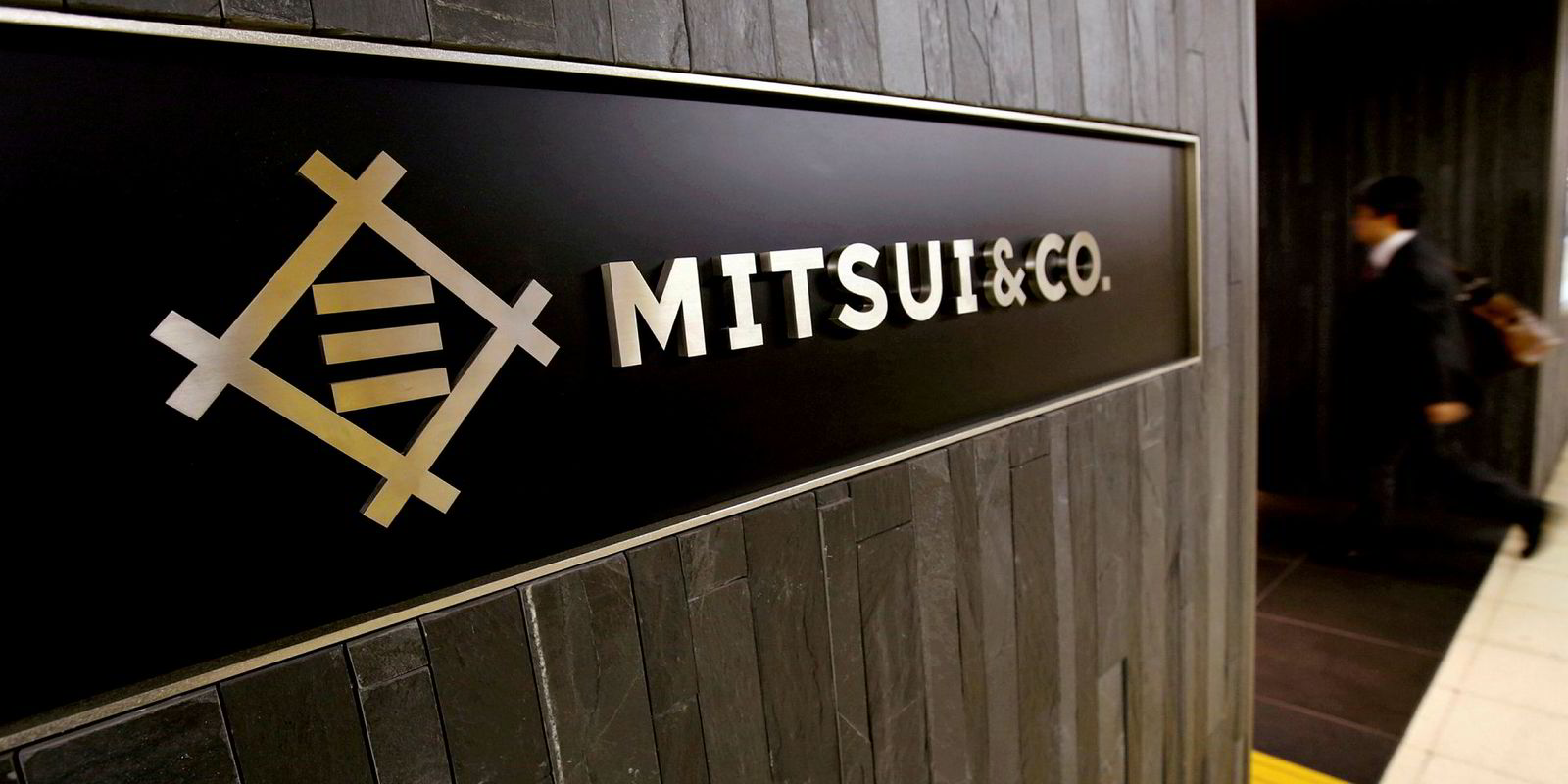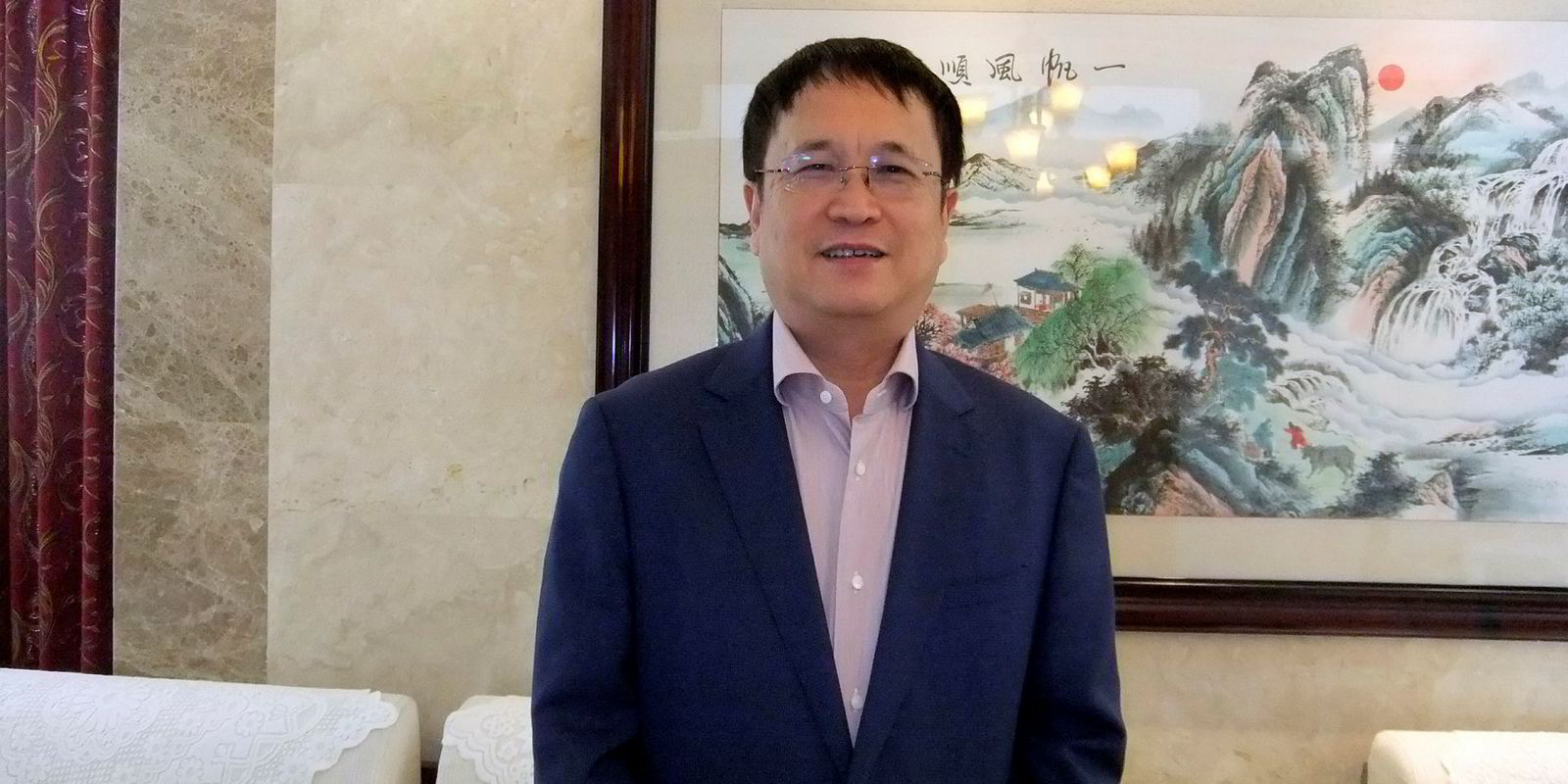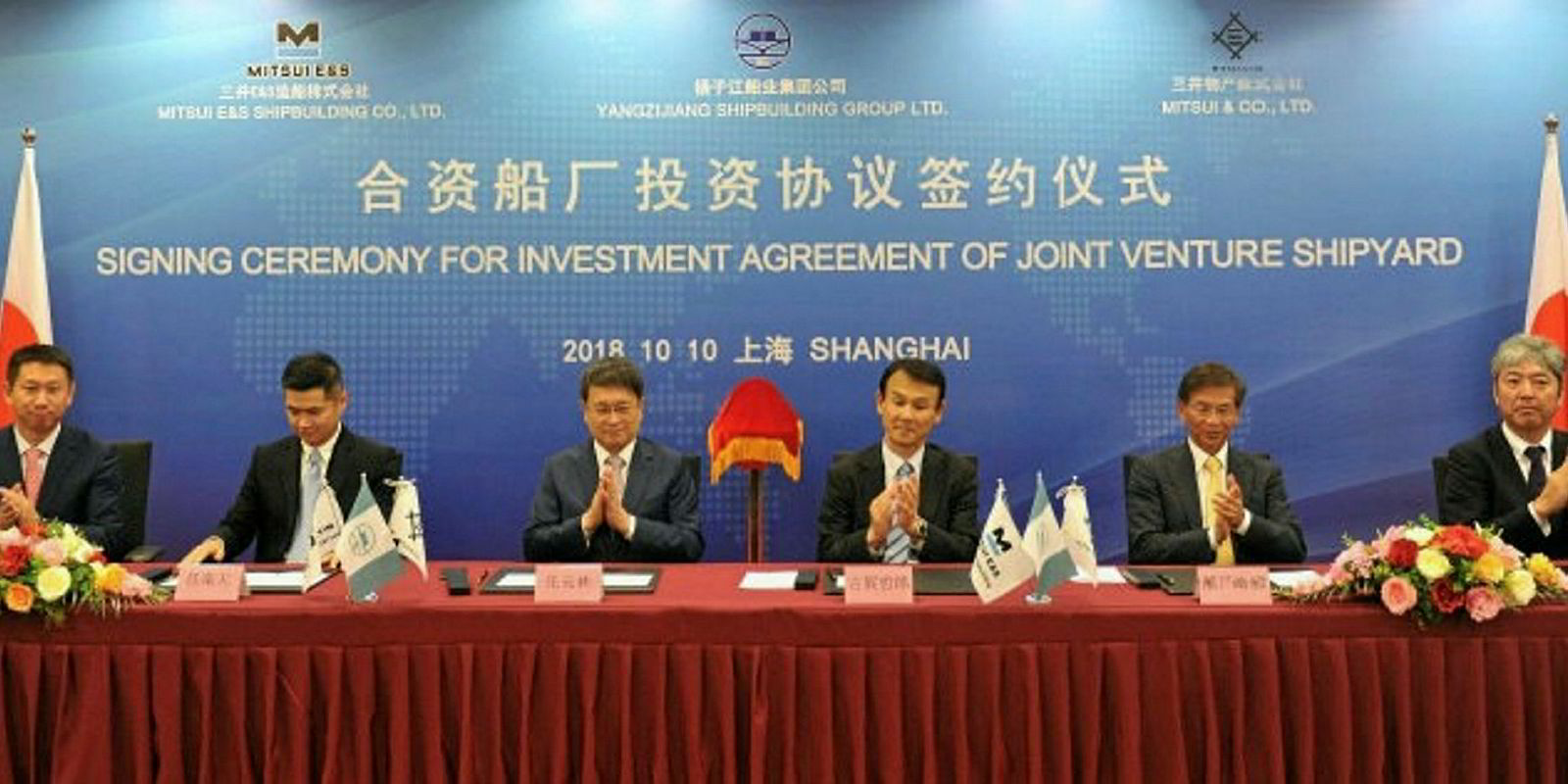Japanese trading house Mitsui & Co has returned to Yangzijiang Shipbuilding for more bulker newbuildings.
Shipbuilding sources said Mitsui has signed up for three additonal kamsarmax bulkers, bringing its total order there to eight.
The price for the latest 82,000-dwt newbuildings has not been disclosed, but the company is reportedly paying about $27m each for five ships ordered during the first half of this year.
A Yangzijiang official declined to comment on reports of the deal, citing contract confidentiality.
2020 delivery
One shipbuilding source said the Jiangsu-based shipyard group is scheduled to deliver all eight bulkers in 2020.
The group’s Taicang Shipyard, which was traditionally used for building offshore structures and outfitting but has now been repurposed for traditional shipbuilding, will construct five vessels. Its main yard in Jiangyin will build the remaining three ships.
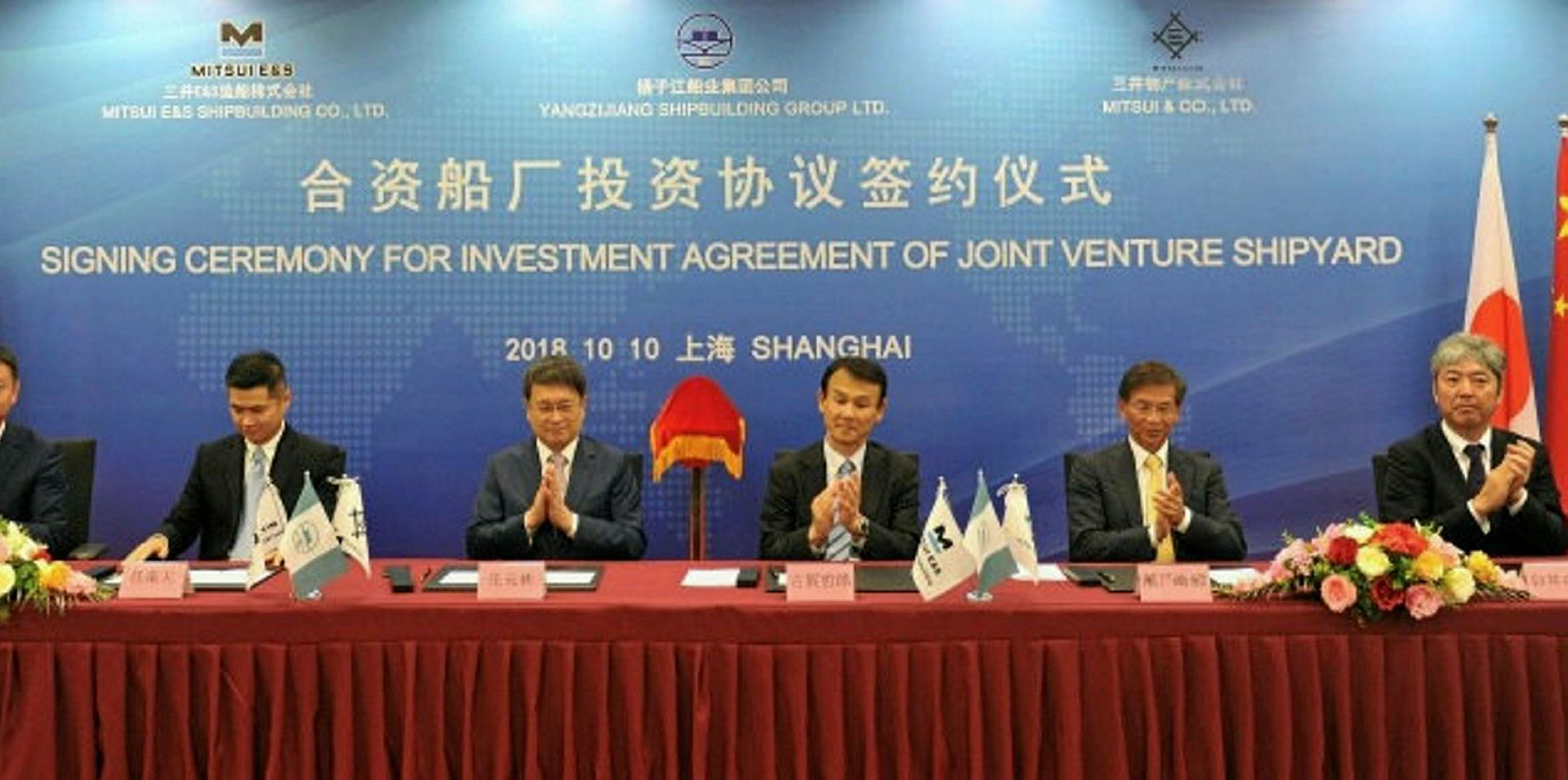
Taicang tie-up
Mitsui’s latest order follows a wider relationship with Yangzijiang that centres on the Taicang yard.
Last month, the two companies teamed up with Japanese yard Mitsui Engineering & Shipbuilding (Mitsui E&S) in a joint venture expected to create an Asian shipbuilding powerhouse.
The new company will rent the facility for 20 years from next April to construct bulkers.
The yard does not have a dry dock but the partners are planning to build one. It has not yet been decided when construction will begin.
The joint company is targeting annual sales of ¥80bn ($713m) at the facility within five years, with an ambition to eventually break into the tanker and LNG markets.
Capesizes in the mix
On the capesize front, Mitsui has six vessels under construction at Yangzijiang for delivery between the end of 2019 and early 2021.
Three of the newbuildings were ordered through Great Wave Navigation, a joint venture with US commodities trading house Cargill.
The 180,000-dwt vessels were reported to cost about $41.4m apiece.
In addition, Mitsui booked five 50,000-dwt MR product tankers at South Korea’s Samsung Heavy Industries in June.
The SHI newbuildings, which will meet the IMO’s new Tier III emission standards, were reported to cost between $35m and $36m apiece.
They were ordered against long-term charters to US energy giant Chevron, which is taking two vessels, and commodities trader Cargill, which will charter three.
